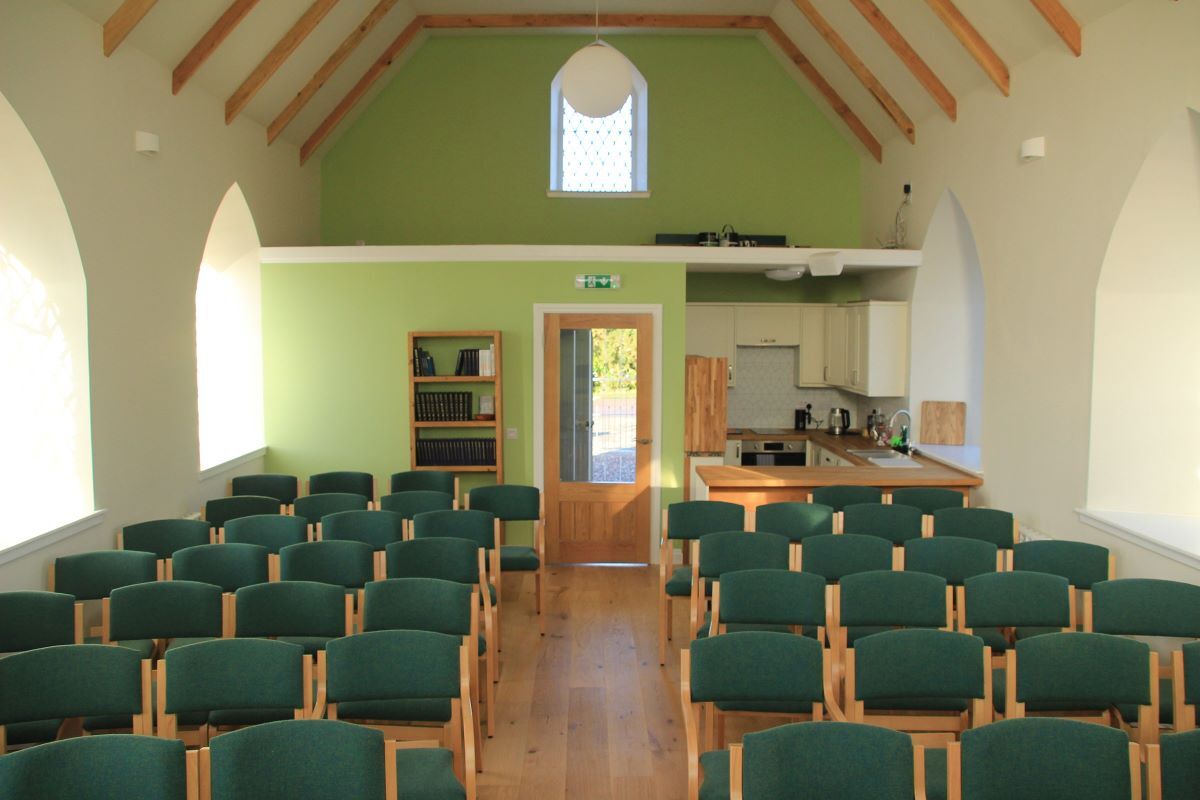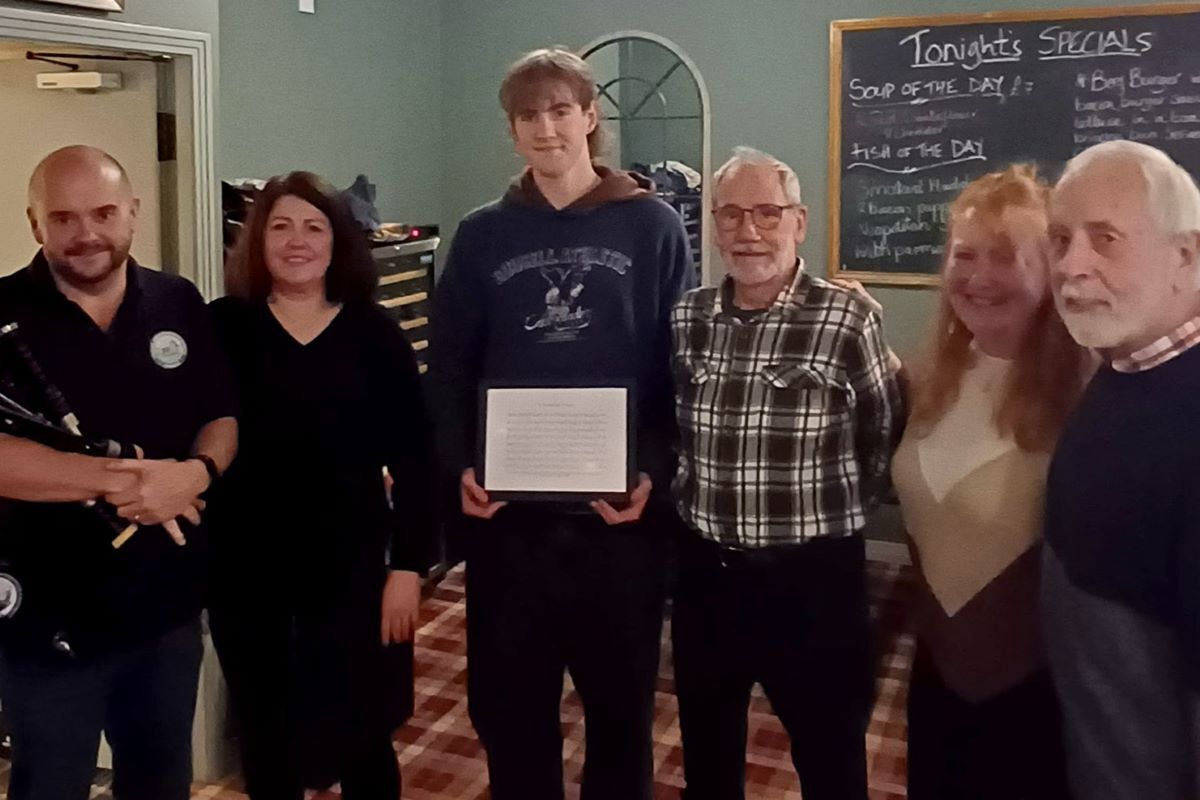ENERGY ASSISTANCE - a lifeline this winter
Worried about energy costs as winter approaches? In a world of rising bills and tighter budgets, the thought of keeping warm and comfortable a affordably can keep anyone up at night.
Help is at hand from the friendly, trained advisors at Argyll and Bute Citizens Advice Bureau, who are ready to lend a sympathetic ear and practical guidance. From offering impartial advice to exploring possible benefits to which their clients are entitled to helping to negotiate with energy companies, the Bureau offers a wide range of services that are free and confidential for anyone to access. Libby Dobbie is the Bureau’s Development Officer, and having previously served as Energy Advisor, she understands the particular challenges that residents are facing every day in heating their homes.
“People can feel very isolated, or they may feel uncomfortable reaching out,” shared Libby. “But at the Bureau, we’re aware that everybody goes through these things from time to time. We’re completely impartial, so we never judge anybody for the situation that they’re in. We’re just looking to help them get to the best solution as quickly as possible.” The Bureau offers assistance with energy supplier issues, problems with pay as you go meters or an interruption in supply. “We can provide support for people with energy debt, but we can also point people in the direction of assistance with bills, and benefits that may help before they’re in debt,” Libby said. “If you are in arrears but you think that the amount is incorrect, the Bureau can help to check and assist with contacting the energy supplier to investigate. We can also help negotiate to make sure that any arrears are arranged in a manageable repayment plan.”
Help from the government
Thee Bureau’s experts and partner organisations such as Home Energy Scotland are also on hand to advise residents on the various government energy grants and loan schemes that are available. “Energy efficiency schemes are part of the government’s move to help everybody reduce their energy usage,” Libby said. “ the more efficient and insulated that our homes are, the warmer they are, and the more we can all reduce our reliance on fossil fuels and electricity.”
These schemes can cover schemes ranging from wall and loft insulation to air source heat pumps to solar panels. Some grants are aimed for those on benefits and may cover 100 per cent of the cost of energy improvements. There are also grants and no interest loans with long repayment periods for families that are not on benefits. Researching the schemes can be a mine eld, though, with confusing or misleading information, as well as aggressive advertising from contractors.
“It’s really difficult for people to navigate all the different information that’s out there, because these kinds of issues are so complicated,” admitted Libby. “You’re better off getting impartial, tailored, independent advice from our advisors so you can make an informed decision. We’re just thinking about keeping you warm and making sure it’s not costing more than you can afford . ”
“It might sound simple, but actually, low or no cost changes are the best things that anyone can do to improve their energy usage and their energy costs”
Small steps for big savings
Whether offering advice about ways to reduce energy bills or referring a client for a free professional home energy survey, the Bureau is available to help their clients make tailored decisions about home improvement or lifestyle changes.
“There are a lot of ways that people can actually reduce the amount on their bills,” Libby said.
“We start with being more energy efficient, because the best way is actually to reduce the amount of energy that you’re using.”
Libby shares some simple tips for saving money on energy bills this winter that have no or very low cost.
Draft proofing
Heat can escape from cracks and spaces, such as around pipes, doors and windows. Sealing drafts is a low cost way to keep the house warmer and energy bills lower.
Heat wisely
It’s not advisable to let the whole house go cold, because that causes issues with dampness. But there can be low heat in rooms that aren’t used, as long as it’s not le to be completely cold, which attracts moisture from the rest of the house.
Good habits
Avoid boiling a full kettle for one cup, or getting distracted so that it has to boil again. Remember to turn off the lights when leaving a room and switch to low energy LED light bulbs. When it’s time to replace appliances, choose ones that have the lowest energy efficiency rating.
“It might sound simple, but actually, low or no cost changes are the best things that anyone can do to improve their energy usage and their energy costs,” Libby advised. “People often overlook those because they think it won’t make a difference, but when you add it up over time, it has a big impact.”
To speak with a Bureau advisor about any home energy concerns and issues, free
and confidentially, phone 01546 605550 from 10am-4pm Monday - Friday or email info@abcab.org.uk.
ABCAB is looking to set up a focus group relating to the ‘Energy Performance Certificate’ system. If you are interested in contributing to this group by sharing your opinions, please get in touch with us.
Latest News
JOBS
Sign up to our daily Newsletter
Permission Statement
Yes! I would like to be sent emails from West Coast Today
I understand that my personal information will not be shared with any third parties, and will only be used to provide me with useful targeted articles as indicated.
I'm also aware that I can un-subscribe at any point either from each email notification or on My Account screen.












